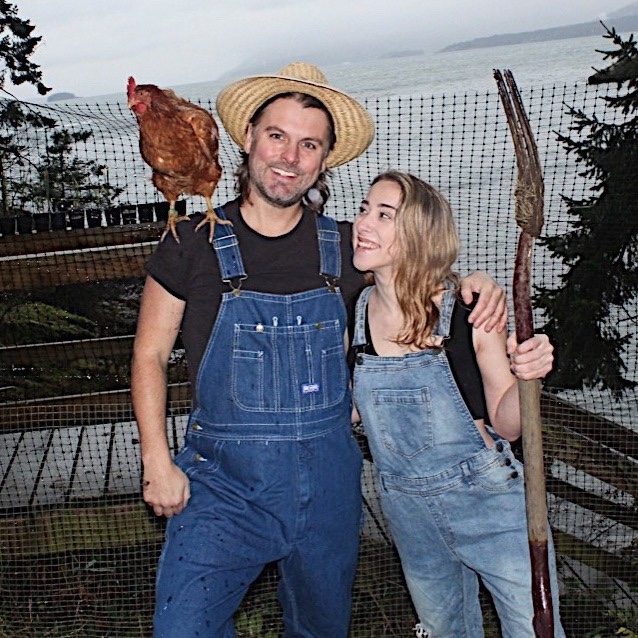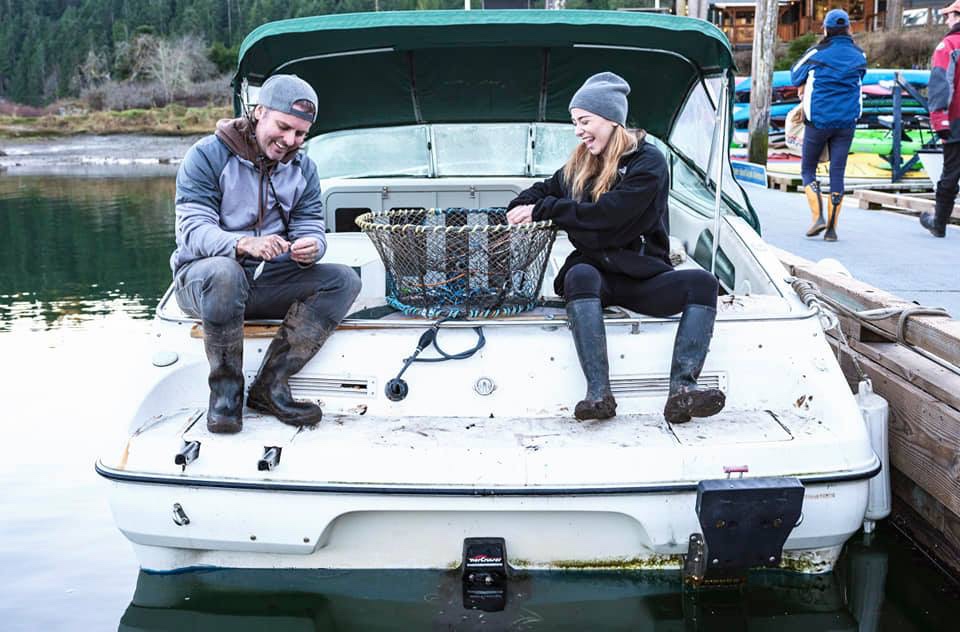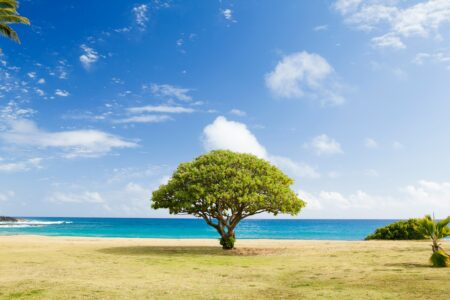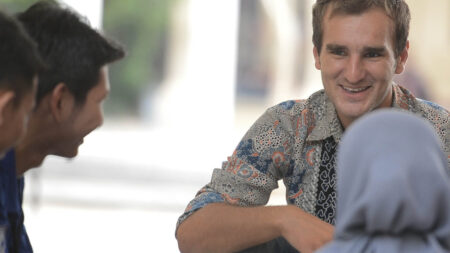We had the chance to sit down with Chris Hall and Stef Lowey, a couple who decided to challenge themselves by spending one full year living off the land. Let’s learn more about their journey and adventure to 365 days of sustainability.
Tell us a little bit about you and your background:
My Girlfriend an I are on a 365 Day Challenge to only Eat what we Catch, Grow, Harvest or Raise. This includes everything down to our seasonings. We harvest our Salt from The Ocean. Grow Stevia as a Sugar Substitute and grow our own Wheat for Flour.
You can follow along with our journey at www.youtube.com/
What is a fun fact about you?
Stef and I both grew up very much as city folk, so aren’t you average hippies.
When the pandemic hit, it really put things in perspective for us and we dramatically changed our lives.
Why do you think climate change and sustainability is such an important topic today?
I think that it is becoming more and more evident that we need to start taking care of this planet or things are going to deteriorate extremely quickly. It provides a lot of hope that so many people are more focused on the environment and sustainability these days.

What can the average person do to make a difference?
Every little bit helps. We realise we are very fortunate to be in the position we are in and not everyone can change their lives in such a dramatic way, but there are lots of little things people can do. Reduce your use of plastics. Plant trees, or if you don’t have space, make small donations to organisations that plant trees. Reduce what you buy. The average person consumes far too much these days!
What made you choose this lifestyle?
It has always been something that I have wanted to do. I have always loved growing vegetables since I was a kid and about 4 months before we started this challenge we got our first 6 hens. It’s true what they say… It is a gateway animal. lol When the pandemic hit, and grocery stores started running out of items, it really made us think about just how reliant we were on corporations to provide us with our most basic needs. We were both out of work due to the pandemic at the start of this challenge, so we decided to just go for it.

What’s your biggest takeaway from it?
The biggest takeaway from this challenge has been something we did not expect. Without it being the focus of our challenge or something we were really striving for, we reduced our garbage and recycling by about 90%. We had never considered just how much of our garbage came from food and beverage packaging. Without buying and processed or packaged foods, we only produced 2 small bags of garbage in the first 3 months.
What was the biggest challenge?
I think the biggest challenge has been the lack of variety through the winter. We are very lucky to live in Canada Growing Zone 9, which allows us to grow vegetables like carrots, beets and Kale right through the winter. So, we certainly don’t mean to complain because we are lucky to be able to grow things all year, but there is only so much Kale you can eat before you get tired of it. However, this also has made us more aware of how people in our generation base their eating decisions on taste and preference, rather than what their body actually needs and is locally in season.
What advice do you have for other people looking to do the same thing?
For other people that are looking to do this, we certainly don’t want to give the false impression that it is easy. It is a lot of work, and can sometimes be quite challenging, but it is definitely doable. We would probably recommend that most people try and continually reduce the amount of food they purchase year after year, rather than all at once. We are very fortunate on 2 major factors that have allowed us to make it through 120 months of the challenge now. The first, as mentioned above, is being in a Sub Mediterranean Climate (In Canada…. Can you believe it) This allowed us to grow a number of staple crops right through the winter. The second major factor was having access to the ocean. This allowed us to harvest seaweed when vegetable supplies were low and also supplied us with Iodine. We were able to easily harvest our Salt, and also gave us access to Fish, Crabs, Prawns and other Shellfish.
If people were trying this in a different geographical location they would certainly face some additional challenges that we were very fortunate to avoid. Warnings aside, we absolutely love it, and would highly recommend people try and produce as much of their own food as they can. You will eat healthier, reduce the amount of garbage you produce, eliminate food items being shipped from other countries, and feel an immense amount of satisfaction doing it!
Thank you Stef and Chris for sharing your experience living off the land and 365 Days of Sustainability.
To follow Chris and Stef’s journey, follow their Youtube Channel here and their Facebook page Here.




